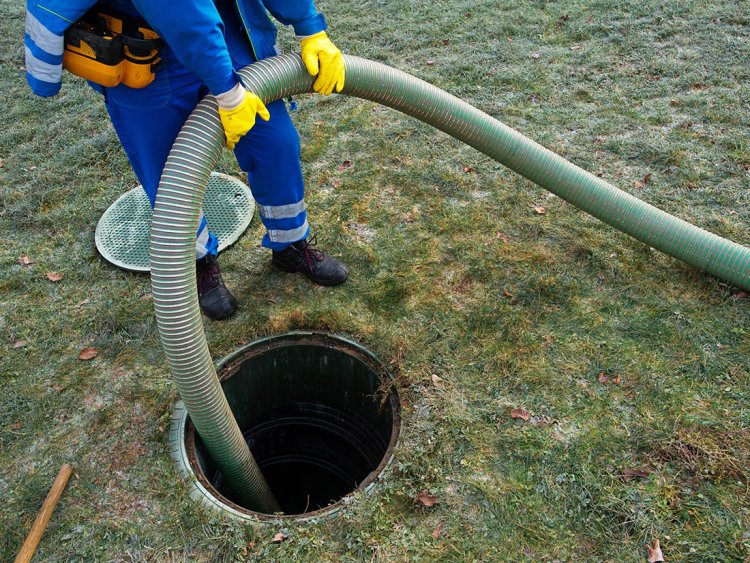Why You Shouldn't Wait: The Importance of Emergency Septic Pumping
Learn why emergency septic pumping is essential for maintaining a healthy home. Discover the signs, causes, and benefits of timely septic system care.

When it comes to home maintenance, one of the most overlooked systems is the septic tank. Often, homeowners only think about their septic system when something goes wrong. However, when septic problems arise unexpectedly, emergency septic pumping can make all the difference in avoiding costly damage and health hazards.
What is Emergency Septic Pumping?
Emergency septic pumping refers to the process of quickly removing solid waste and water from a septic tank during an urgent situation. Typically, a septic tank needs to be pumped regularly to ensure it functions correctly. However, if the system becomes overwhelmed or blocked, you may need emergency pumping services to prevent further damage or failure.
A well-maintained septic system is vital for your home’s sanitation. Without proper care, a septic tank can overflow, leading to unpleasant odors, sewage backups, and potential health risks. Emergency septic pumping is often required when there’s a problem, such as tank overflows, clogs, or drainage issues that can’t wait for routine service.
When Should You Consider Emergency Septic Pumping?
Several signs indicate you may need emergency septic pumping. Here are some common scenarios when you should consider calling a professional:
Sewage Backup in Your Home or Yard
The most immediate sign of a septic emergency is sewage backup. If you notice waste or water backing up into your sinks, bathtubs, or toilets, it’s a clear indication that your septic tank is full and can’t handle the volume. This can lead to severe damage to your plumbing system and is a significant health hazard.
You may also notice sewage pooling in your yard or near the septic tank. This is another sign that your system is overwhelmed and needs urgent attention.
Slow Draining or Gurgling Sounds
If you experience slow drainage in your sinks, bathtubs, or toilets, or if you hear gurgling sounds when you flush, these could be signs that your septic tank is nearing full capacity. Slow drainage is a result of the waste being unable to move through the system due to blockages or an overloaded tank.
Gurgling sounds can occur when air bubbles are trapped inside the pipes because of a clog or backup. If not addressed promptly, this could lead to more serious issues.
Foul Odors Around Your Property
A septic tank that’s not functioning properly can release unpleasant odors into the air. If you notice foul smells coming from your drains, yard, or near the septic tank, likely, your system is not operating correctly. The smell of sewage is a strong indicator that the waste is not being processed and removed as it should be.
These odors are not only uncomfortable but can be harmful to your health. If you notice them, call for emergency septic pumping right away.
Water Pooling Near the Drain Field
Your septic system has a drain field where wastewater is filtered and absorbed into the ground. If water starts pooling in the area near the drain field, this is a clear sign of septic failure. It could be that the tank is overfilled, or the drain field is clogged. Either way, the system cannot process waste properly, and immediate action is required.
Increased Water Usage or Heavy Rains
Heavy rain or increased water usage in your home can put extra strain on your septic system. If your system is not able to handle this sudden load, you may experience backups, slow drainage, or overflows. In such cases, emergency septic pumping may be necessary to avoid further damage and prevent a total system failure.
What Happens During Emergency Septic Pumping?
Emergency septic pumping involves several steps to address an urgent situation. Here’s what typically happens when you call a professional for help:
-
Inspection: A septic expert will inspect your system to identify the problem. They’ll check the tank’s capacity, look for signs of blockages, and assess the overall health of the system.
-
Pumping: Once the issue is identified, the technician will use a vacuum truck to remove the accumulated waste and water from the tank. This helps to restore proper function and prevent further damage.
-
Cleaning and Repair: After pumping the septic tank, the technician may clean the tank and inspect the drain lines for any clogs. They may also perform repairs or recommend maintenance to ensure the system works smoothly going forward.
-
Testing: To ensure everything is functioning properly, the technician may test the system by running water through the pipes and checking for leaks or further signs of issues.
-
Preventive Recommendations: After the emergency is resolved, the technician will likely offer advice on how to prevent future emergencies. This may include scheduling regular maintenance, monitoring water usage, or repairing any underlying issues.
Why Emergency Septic Pumping is Crucial for Homeowners
Ignoring septic problems or delaying septic pumping can lead to serious issues down the line. Here’s why emergency septic pumping is so important:
Prevent Health Hazards
When your septic system fails, untreated sewage can leak into your home or yard. This can pose a serious health risk to you and your family, as it can contaminate drinking water and create hazardous bacteria. Timely emergency septic pumping removes waste and helps protect your health.
Avoid Expensive Repairs
A septic system failure can lead to expensive repairs or replacements. If left unchecked, minor issues can turn into major ones, leading to the need for a complete system replacement. Emergency pumping can prevent these costly repairs and extend the life of your system.
Protect Your Property Value
A malfunctioning septic system can lower your property value. If you plan to sell your home, potential buyers may be hesitant if they notice septic issues. By addressing septic problems early with emergency pumping, you protect your property and maintain its value.
How to Prevent Septic Emergencies
While emergency septic pumping is sometimes unavoidable, there are steps you can take to minimize the risk of emergencies:
-
Schedule Regular Pumping: Most experts recommend pumping your septic tank every 3 to 5 years, depending on your household size and usage.
-
Avoid Flushing Non-Biodegradable Items: Items like wipes, paper towels, and grease can clog your septic system. Only flush human waste and toilet paper.
-
Monitor Water Usage: Avoid excessive water use, which can overwhelm your septic system. Install water-saving devices and be mindful of the water you consume.
-
Maintain Your Drain Field: Keep the area around your drain field clear of trees and heavy structures to prevent root intrusion and damage.
Conclusion
Emergency septic pumping is an essential service that helps prevent costly damage, health hazards, and system failures. By recognizing the signs of a problem early and acting quickly, you can protect your home, your health, and your septic system. Regular maintenance and prompt attention to any issues will ensure your septic system continues to function efficiently for years to come.
Don’t wait for a septic emergency! Schedule your emergency septic pumping today to keep your system running smoothly and your home safe from costly damage.
What's Your Reaction?





















